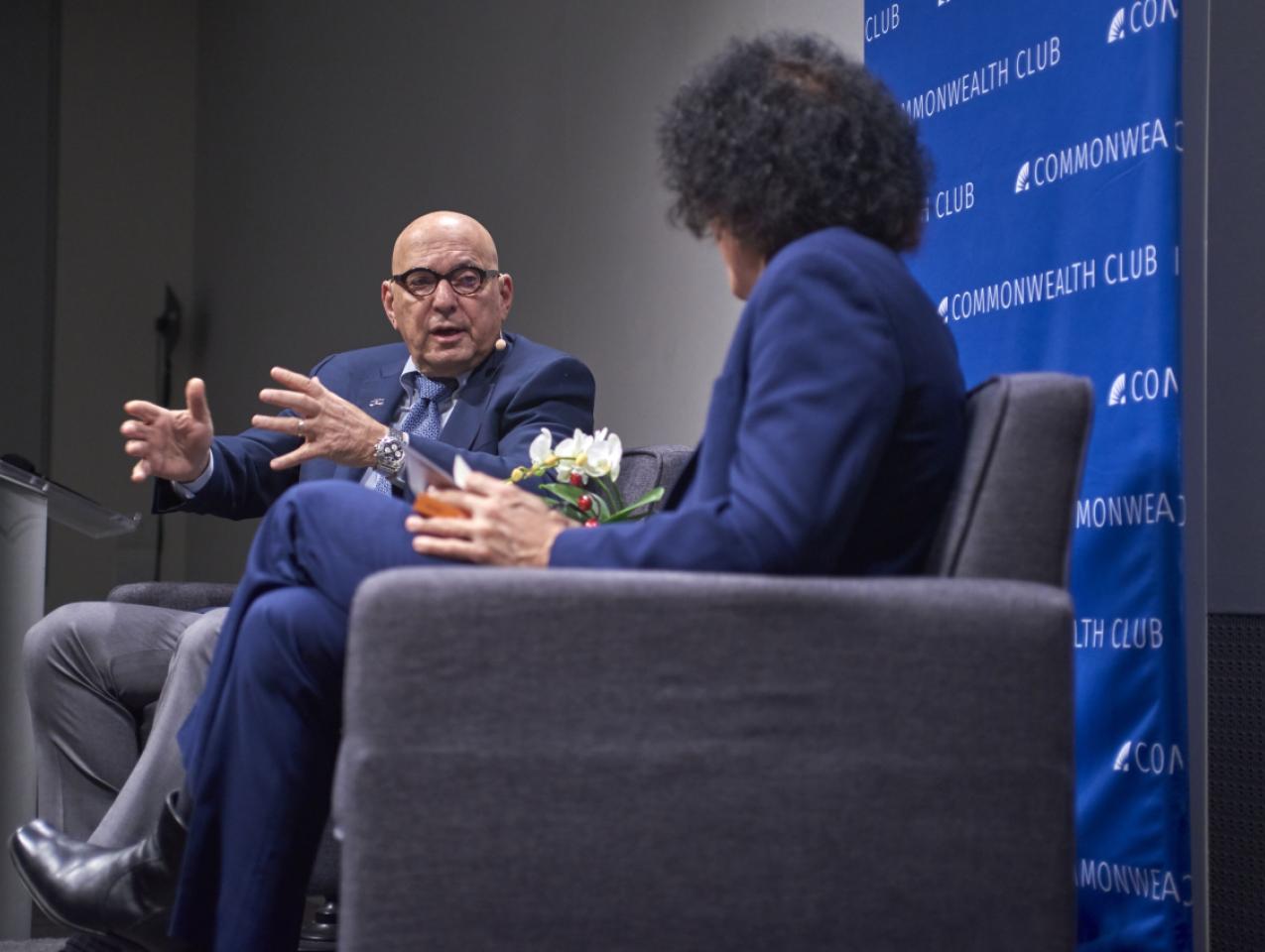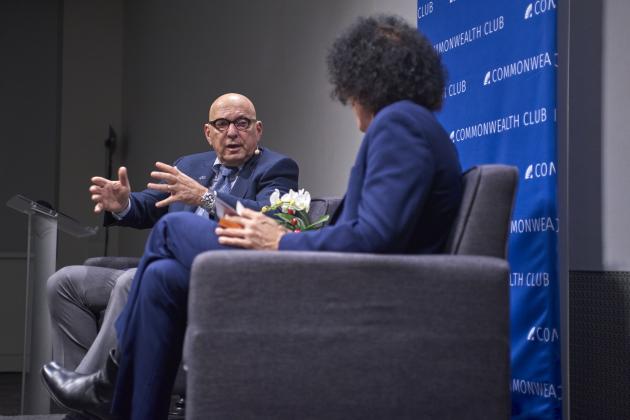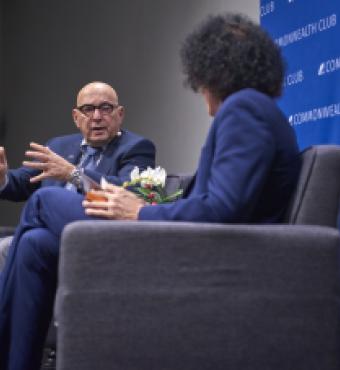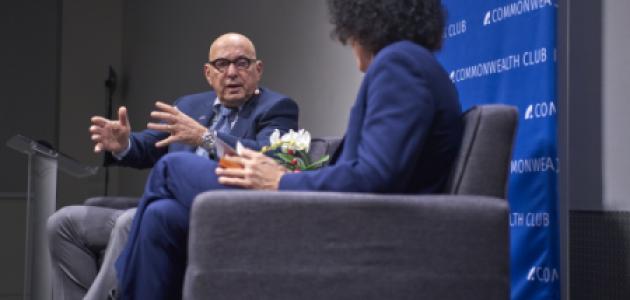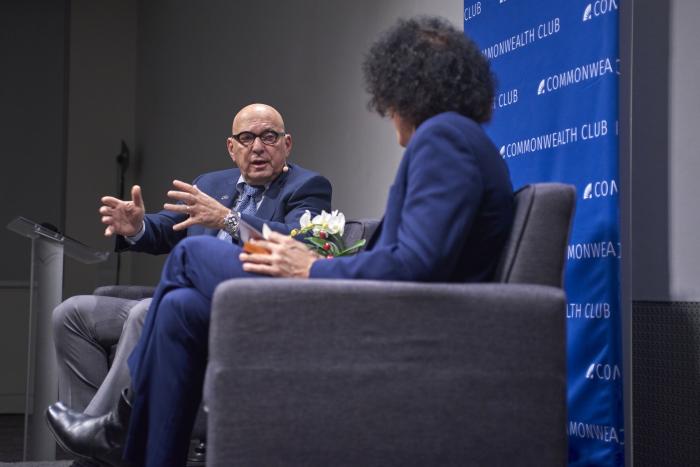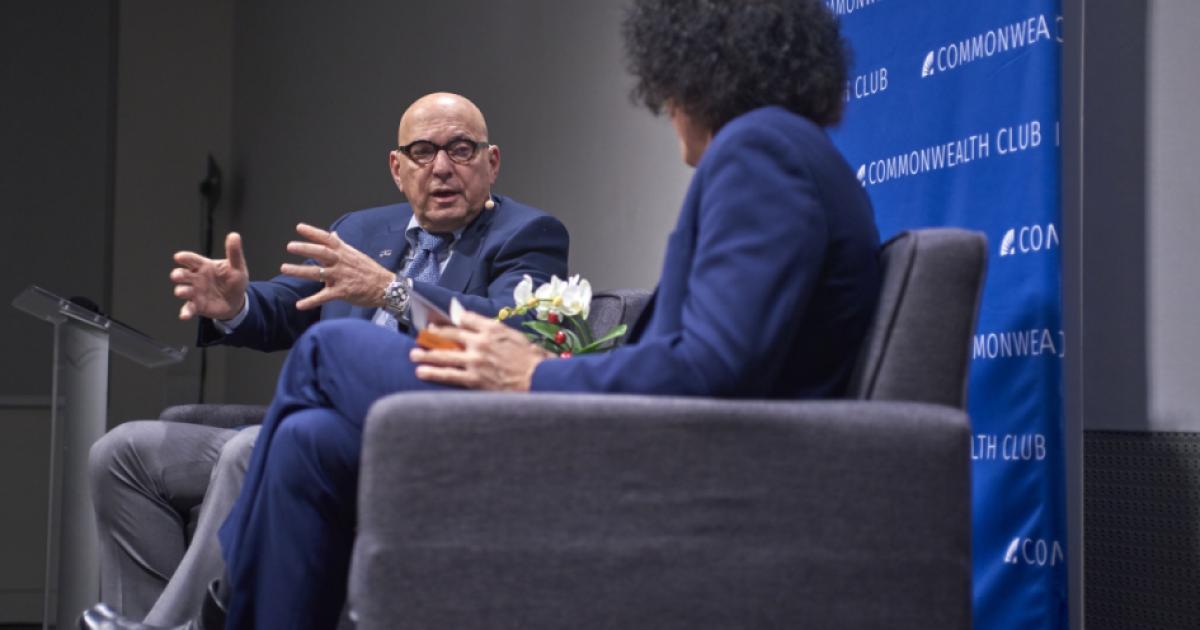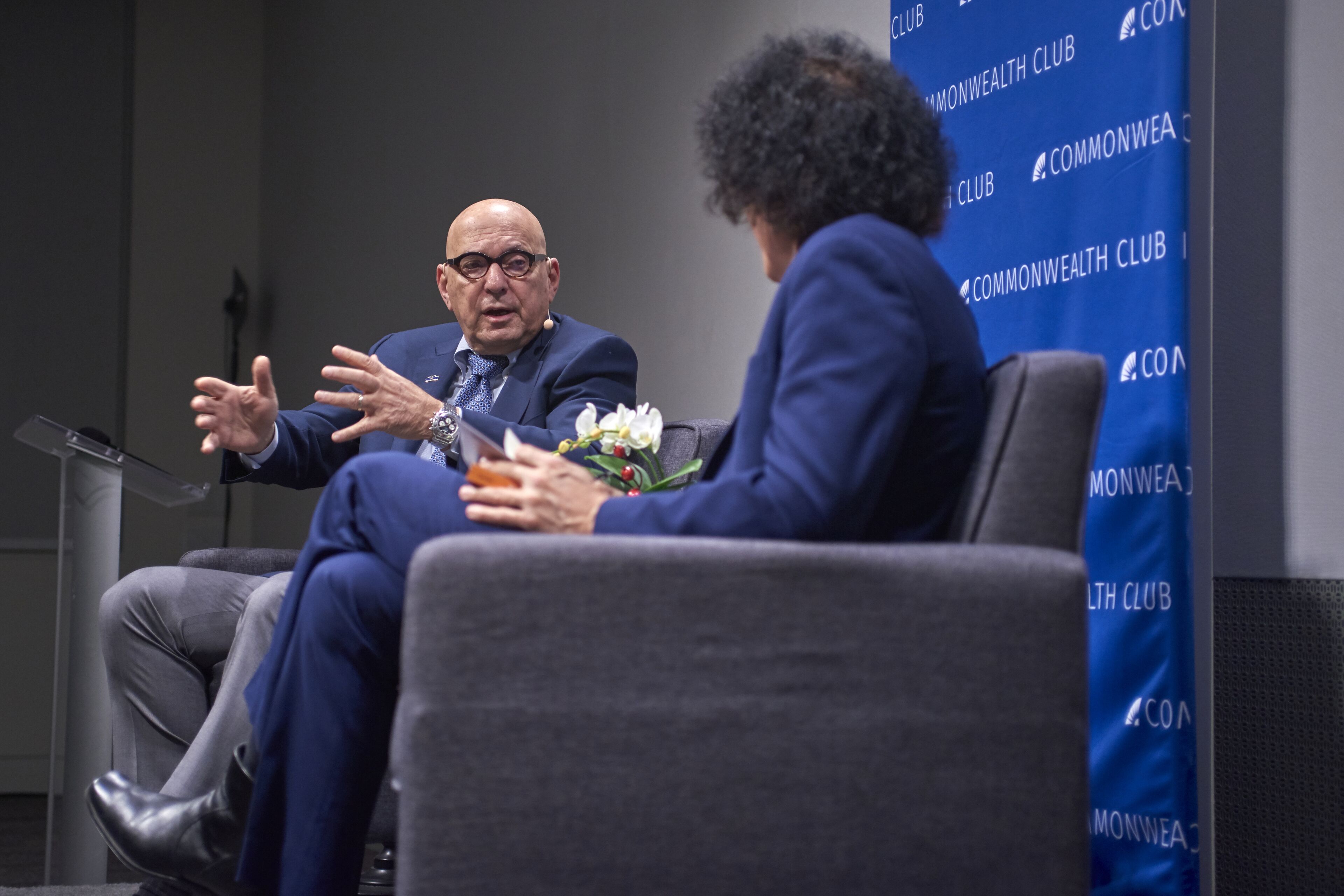
In the seventy years since its founding, the state of Israel has built all the hardware of a thriving formal democracy—institutions, procedures, and elections—but has yet to fully install the software that will allow it to emerge as a substantive democracy, argued Hoover Institution Distinguished Fellow Ayre Carmon in a discussion with SF Weekly writer Jonathan Curiel at San Francisco’s Commonwealth Club.
Carmon is founding president of the Israeli Democracy Institute and author of a newly released book published by Hoover Institution Press, Building Democracy on Sand: Israel without a Constitution.
He defined a “substantive democracy” as one that draws its political culture from what he believes the Jewish state needs to sustain itself in future generations: a constitution.
Carmon explained that when Israel was founded, in 1948, its political leaders weren’t imitating America’s Founding Fathers. He maintained that there weren’t any great debates about political philosophy or body of written arguments that resembled the Federalist Papers. Israel coalesced in the gathering of the diasporic Jewish people into one nation. From these beginnings a state emerged, but not a defining principle of statehood.
Israel’s declaration of independence articulates in its final clause that a constitution would be adopted by October 1949. However, by the first Knesset (parliamentary) election in January of that year, Prime Minister David Ben-Gurion had changed his mind.
In lieu of a constitution and bill of rights, the Knesset passed 11 basic laws from the mid-1950s through 1991. Among these were two laws that defined the state’s governance as “Jewish” and “democratic.” Yet the conflicts between Jewish identities (including Orthodox, conservative, and reform) and between democratic values and the collective body of Jewish religious laws (halacha) leads to discrepancies in the understanding of these terms and to national vulnerabilities in the absence of a constitution.
Carmon said his research uncovers the long-term challenges that arise from the integration of many diverse groups in a rapidly changing society. In 1948, Israel’s total population was 803,000. Eighty percent of the nation’s Jews were of European origin, with 15 percent from Asia and Africa. Among all of Israel’s inhabitants, 13 percent were Arab. Today, the total population of Israel is nearly 9 million. Over 50 percent of its Jews are of Asian and African origin, and 20 percent of all citizens are Arab.
Israel’s current religious makeup is even more complicated. A Pew Research survey conducted in 2014-2015 shows that 8 percent of Jews identify as Haredi (Ultra-Orthodox), 10 percent Dati (national religious), 23 percent Masorti (traditional), and 40 percent Hiloni (secular). Of all Israelis other than Jewish, 14 percent identify as Muslim, 2 percent Christian, 2 percent Druze, and 1 percent other.
“The scenery today is totally different,” Carmon explained. “There isn’t a majority, Israel is a patchwork of minorities.”
Carmon argued that a constitution should be designed to instill a new kind of pluralism that assuages tension and conflict. Diversity should be celebrated but simultaneously complemented by common denominators and empathy across the social spectrum.
“The deliberations over a constitution and its content and substance could lead, and should lead, to a kind of understanding,” Carmon argued.
His hope is that a constitution should articulate “freedom of religion and from religion,” arguing that ultra-Orthodox segments – which represent the fastest growing religious demographic – have recently dominated politics over conservative and reform denominations.
Carmon maintained that though Israel is grounded in its Jewish identity, its founders wanted to foster religious and cultural pluralism. He made the case that the country’s Arabs are achieving full integration in civil society, growing a middle class, and embracing an Israeli identity.
He lamented a basic law passed in 2008 which demoted Arabic from an “official” language, to a “recognized” one. “This is one of the signs that we are losing our self-confidence,” he said.
Citing Israel’s declaration of independence, Carmon emphasized: “It states very clearly that there will be no discrimination of gender, nationality, or whatever . . . the universalistic values are a major thing.”









